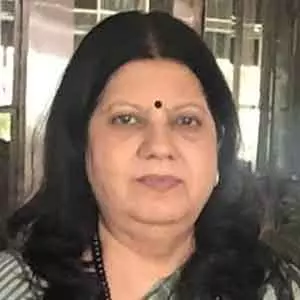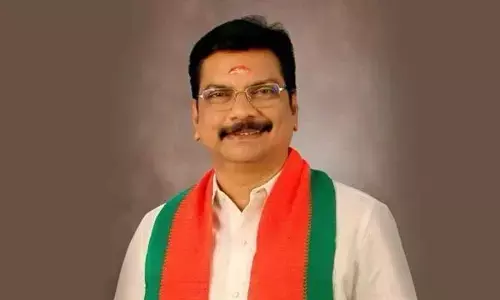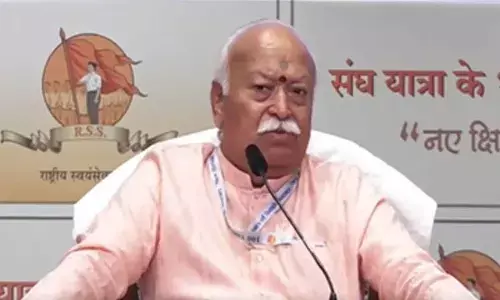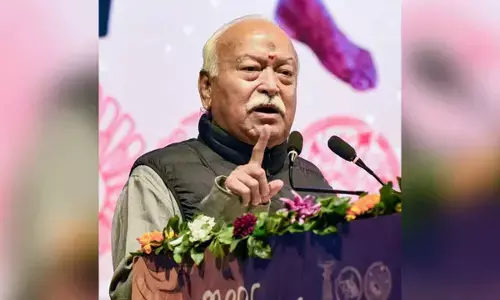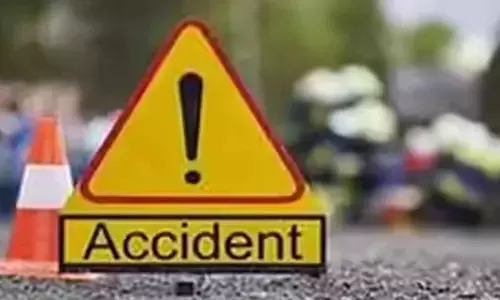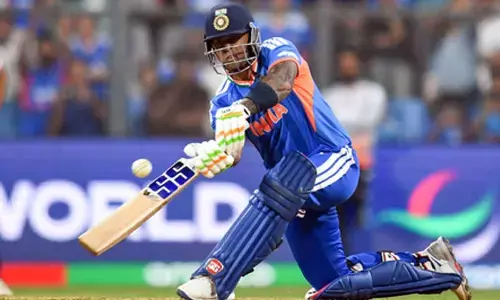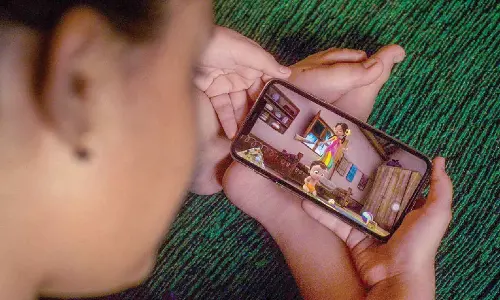Good start with Pakistan

Good start with Pakistan, Narendra Modi succeeded to send strong signals, both domestically and abroad, by talking tough with Pakistan Prime Minister Nawaz Sharif on the terror issue.
- There was no mention of the contentious Kashmir issue
- Sharif describes talks as “good and constructive”
- He also calls on Vajpayee and President Mukherjee
- Foreign Secys to meet soon to follow up the bilateral talks
New Delhi: Soon after assuming charge as Prime Minister in his South Block Office, Narendra Modi succeeded to send strong signals, both domestically and abroad, by talking tough with Pakistan Prime Minister Nawaz Sharif on the terror issue.
However, Pakistan Prime Minister Nawaz Sharif was confident of a new leaf in the relationship between the two countries. He said in a statement, “Let’s change confrontation into cooperation.”
According to sources, Prime Minister Modi made it clear that unless Pakistan took steps to dismantle terror infrastructure, no meaningful dialogue was possible with them. The Prime Minister asked Sharif to abide by Pakistan’s commitment to control terrorism emanating from its soil against India. He underscored the point that India wantedfriendly relations with Pakistan but that was possible only when there was an end to terror and violence, emanating from across the borders.
During his election campaign, it might be recalled that Modi had targeted the Congress for its weak-kneed policy on terror and for being soft on Pakistan. The Prime Minister also raised the issue of the terror attack on the Indian Consulate in Herat in Afghanistan. Modi shared with Sharif the information he got from Afghanistan President Hamid Karzai, who blamed Pakistan-based group, Lashkar-e-Taiba. The meeting between the two Prime Ministers that was supposed to be
A warm-up session, held a day after the oath-taking ceremony of Narendra Modi as Prime Minister, turned out to be a serious affair. At the 35-minute meeting that was stretched to 50 minutes, Modi primarily focussed on the issue of terrorism while there was no mention of the contentious Kashmir issue that was often raised by Pakistan in a big way.
Significantly Nawaz Sharif refrained from meeting the Hurriyat leaders, which had been the practice of visiting Pakistani dignitaries.
According to Foreign Secretary Sujatha Singh, the meeting was held in a cordial atmosphere where both sides decided that their foreign Secretaries would be in touch and discuss a way forward on talks that had been suspended since January 2013. Sharif, after the meeting, was more forthcoming, when he revealed that the Foreign Secretaries “will meet soon to review and carry forward the bilateral agenda.”
Briefing on the bilaterals, Foreign Secretary Sujata Singh said that both the sides agreed to normalisation of trade according to the roadmap drawn up in September 2012. “Prime Minister Narendra Modi emphasised on the idea of SAARC for regional cooperation and how it can contribute to the growth and development in all countries,” she said.
After the bilateral meeting, both India and Pakistan briefed the media separately. While Foreign Secretary Sujatha Singh briefed from the Indian side, Nawaz Sharif read out a statement before leaving for Pakistan. In his statement, Sharif talked of development and economic agenda that was not possible unless both countries worked together for peace and prosperity. He said, “We owe to the people to overcome the legacy of mistrust and misgiving.”
Expressing confidence in succeeding to turn a new page in the relations, Sharif recalled his meeting with Vajpayee in Lahore in 1999 and urged Modi to pick up the threads from
Lahore Declaration. He said, “It was up to us to change confrontation into cooperation and engaging in accusations and counter-accusations would be counter-productive,” adding Pakistan was ready to discuss any issue with India.
After his meeting with Prime Minister Modi, Nawaz Sharif called on former Prime Minister Atal Behari Vajpayee at his residence.
It was Vajpayee, who undertook his famous Bus Yatra to Pakistan in 1999, during the previous tenure of Nawaz Sharif in Pakistan, when the two leaders came up with the Lahore Decla ration. It is again the BJP Government in office in 2014, which is engaging with Nawaz Sharif. He later called on President Pranab Mukherjee.

